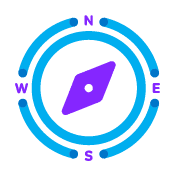

Reconciliation at ICBC
ICBC is on a journey towards lasting and meaningful Reconciliation.
Image credit: Bayja Morgan-Banke from Toquaht, Nuu-chah-nulth Nation and Bonaparte Nation
Our Reconciliation journey
As a Crown corporation operating and serving customers in this place we now call British Columbia, we recognize our duty to better understand the histories, perspectives and needs of Indigenous Peoples, as customers, employees, business partners, or members of First Nations, Métis, or Inuit communities.
With this understanding, we’re making changes to improve how we work with and serve Indigenous Peoples. We’ve made this important work a priority and one goal of our Moving Together 2031 corporate strategy is Meaningful Reconciliation.
We acknowledge that Reconciliation is a responsibility shared by us all, and we have a lot of work ahead of us. We understand it is not a journey with a prescribed ending. Rather, our work will be an ongoing experience of learning and unlearning — and we are committed to these efforts. We welcome feedback at [email protected].
Our Reconciliation commitments
Contact us
We welcome questions and feedback at [email protected].






